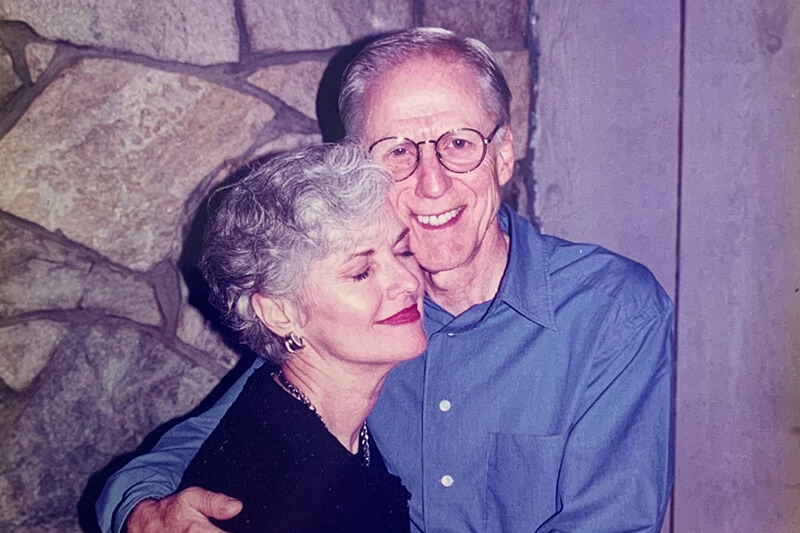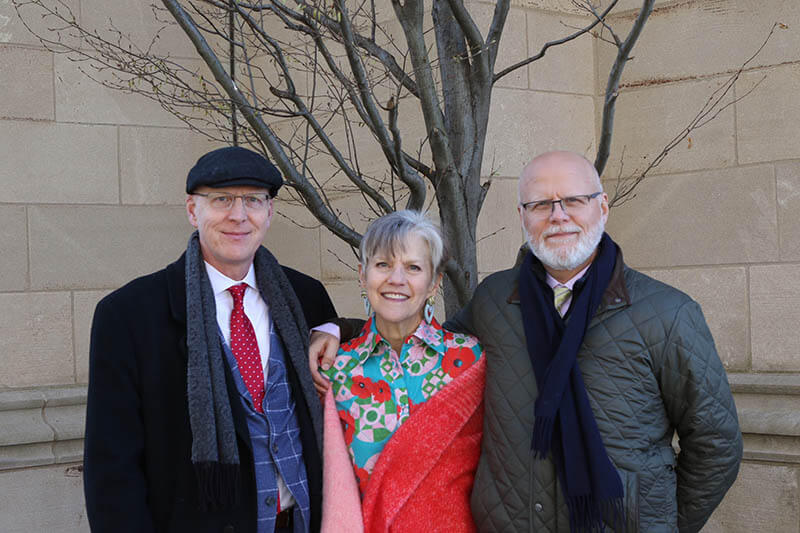
William M. “Bill” Satterwhite Jr., MD, and his wife, Phoebe, set a high standard for helping others.
“Our parents had a sense that sometimes things just aren’t right, and if they’re not right, you ought to try to fix them,” says William M. “Bill” Satterwhite III, JD, MD, noting some of his parents’ prominent volunteer work in Winston-Salem. “Their philosophy was if people need help, you need to help them.”
A few years before the elder Satterwhites died in 2023, just 5 months apart, they made sure their estate plan would help others, too. They designated an estate gift to support the Sticht Center for Healthy Aging and Alzheimer’s Prevention at Atrium Health Wake Forest Baptist Medical Center and research at Wake Forest University School of Medicine.
“The donation is particularly poignant given that Dad struggled with Alzheimer’s disease the last few years, but also education was a big equalizer for him,” says their son Robert Satterwhite. “He was not only the first in his family to go to college but also the first to go to graduate school, in his case medical school. That was important for him. If you got a good education, the world opened up to you.”

Active Lives That Made a Difference
Bill Jr. and Phoebe met through his medical school roommate, who was her twin brother. Married in 1958, the Satterwhites had 3 children — Anne Looney, Bill III and Robert —and set about building active lives that made a difference in their community.
He completed his residency at what was then North Carolina Baptist Hospital in 1963 and started a successful practice, Forsyth Ear, Nose and Throat.
“Dad would occasionally talk about how he would do surgeries on people who couldn’t pay him,” says Bill III, who earned his MD from the Wake Forest University School of Medicine in 1997 and completed his residency at Wake Forest Baptist in 2000. “He said, ‘Well, they just need the surgery, so I’m going to do it.’ There was that sense of generosity and calling for him. He and Mom both were good about doing that.”
The couple had a big heart for helping others. They volunteered at the local community housing for children and at their church. Phoebe was instrumental in founding Crisis Control Ministry and The Samaritan Inn. Following Bill Jr.’s retirement in 1998, he co-founded the Community Care Center, which provides care and medicines to thousands of uninsured patients who don’t qualify for federal or private insurance.
They also encouraged their children to join in the volunteer work — all part of an active life.
“I saw him as this incredible risk taker who started his own practice and determined that we would water ski, snow ski, scuba dive and travel,” Robert says. “That carried on to their 9 grandchildren, so the impact was multigenerational. Dad and Mom’s approach to life and volunteering and donating to worthy causes was quite inspirational.”

‘A Norman Rockwell Couple’
The Satterwhites’ gifts will now help some of those who helped them. Both received care at Wake Forest Baptist.
“The Sticht Center was a huge resource for them,” Anne says. “The doctors there were very transparent and included us in discussions. Mom was seeing different specialists, and it really helped to have 1 person oversee all of that. They helped her get off some medications that weren’t working. They were also a huge resource for Mom — and for us, too — helping her with all of the stages that Dad went through.”
Jeff Williamson, MD, MHS, director of the Sticht Center for Healthy Aging and Alzheimer’s Prevention and professor of gerontology and geriatric medicine, helped care for both of the elder Satterwhites.
“I would describe Bill and Phoebe as a Norman Rockwell couple,” Williamson says. “They were one of the most kind and generous couples I have had the privilege of caring for. Even as age-related disabilities advanced on their own independence, they always expressed concern for others, even for me as their doctor.
“Their generosity of spirit lives on in this gift to support our research mission at the Sticht Center, which is to constantly pursue new ways to help adults age successfully and remain independent in life for as long as possible.”
At the school of medicine, their gift supports the Dean’s Discretionary Fund for Medical Research, which helps to retain and recruit faculty researchers. The fund provides awards, known as Dean’s Hero Awards, to promising early career investigators.
“At their funeral services, I was overwhelmed by the people who came and the stories they had to tell of Mom and Dad’s graciousness, kindness and generosity,” says Anne. “I am so proud to be their daughter. And the legacies they left are big shoes to fill.”
